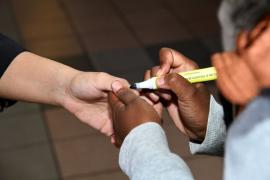
As the indelible ink used to register voters in the recent general elections has almost faded from the left thumb; work to move South Africa Inc forward has been moving ahead steadily.
Following the hotly contested 2024 National and Provincial Elections (NPE), which produced no outright winner, South Africa is traversing partially new ground with the possible formation of a government of national unity (GNU).
I say partially new ground because the country adopted a GNU following the historic elections of 1994 which saw everyone who was eligible to, cast their vote for the first time and the African National Congress (ANC) win the polls. The elections ushered in a new democratic dispensation as well as the decision to put in place a three-party GNU under President Nelson Mandela, despite there being an outright winner.
However, following the 29 May 2024 polls, no political party received an outright majority, necessitating consideration of a number of options, including a GNU which President Cyril Ramaphosa has described as “the beginning of a new era.”
President Ramaphosa said the first GNU was established to promote nation building and inclusivity from a racially divided past during a period of political transition.
While many are wondering what the new GNU will entail in detail, what is clear is that our 30-year-old democracy is growing and maturing.
In other parts of the world, an unfavourable elections outcome for a ruling party could very likely be met with violence and a disregard for organisations established under chapter nine of the Constitution, like the Electoral Commission. Additionally, this violence would be closely followed by intolerance and instability as uninvited guests to an already tumultuous party.
However, in South Africa’s case, the will of the people exercised at the ballot box, is being implemented through the GNU. And before we moan and complain about the time it is taking to announce the new Cabinet, we ought to appreciate the fact that lives have not been lost or disrupted because of the Constitution-provided right for adult citizens to vote in elections and to do so in secret. Dialogue and engagement have been the first port of call - a clear indication that our 30-year-old democracy is dependable, resilient and respected.
To date, we’ve seen the swearing in of Members of Parliament, the election of the Speaker and Deputy Speaker of the National Assembly; the Chairperson of the National Council of Provinces as well as the election and inauguration of President Ramaphosa.
The President affirmed this in his first address to the nation as President of the seventh administration. In his address following his inauguration at the Union Buildings, the President said: “In their multitude, in voices that are many and diverse, the people of South Africa have voted and made known their wishes, their concerns and their expectations. They did not give any single party the full mandate to govern our country alone.”
While the election results were not fully favourable for all parties, the results have been largely accepted and this is evidenced through the 10 of 18 parties with seats in Parliament having signed the GNU’s Statement of Intent.
According to President Ramaphosa’s recent weekly newsletter, the Statement of Intent commits signatories to a set of foundational principles that include respect for constitutionalism, accountability, transparency and community participation in government, evidence-based policy and decision-making, professionalisation of the public service, integrity and good governance.
In addition, the election results are proof that voting is not a futile exercise. The act of making one’s X on a ballot goes a long way. It has the potential of changing the trajectory of the country.
While that stubborn indelible ink may have faded off the left thumb, its impact has not only been an eyesore for those with beautifully manicured fingernails, but has also produced a new valuable chapter in South Africa’s autobiography that we can learn from.
While this autobiography displays all the good, such as increasing enrolment in public universities from 494 356 in 1994 to over a million students in 2023, steadily edging closer to the National Development Plan’s target of 1.6 million enrolments by the year 2030, as well as the provision of social grants to the most vulnerable - the story also lays bare some ugly truths, such as the ongoing battle against inequality, gender-based violence and unemployment that continues to plague society.
Citizens should be proud of how far the country has come. Our Constitution has been stretched and tested. Yet, it is still standing. Our country has not descended into chaos.
Democratic South Africa’s manuscript may have its fair share of stains across its pages in history. What is clear however, is that it has not found itself under the thumb of undemocratic practises. As in 1994, when South Africa showed the rest of the continent and globe that a peaceful transition, together with an inclusive government is possible - again, 30 years later, we are shining the same light of hope for the rest of the world, as we begin our new era. -SAnews.gov.za
Neo Semono is a Features Editor at SAnews.gov.za


